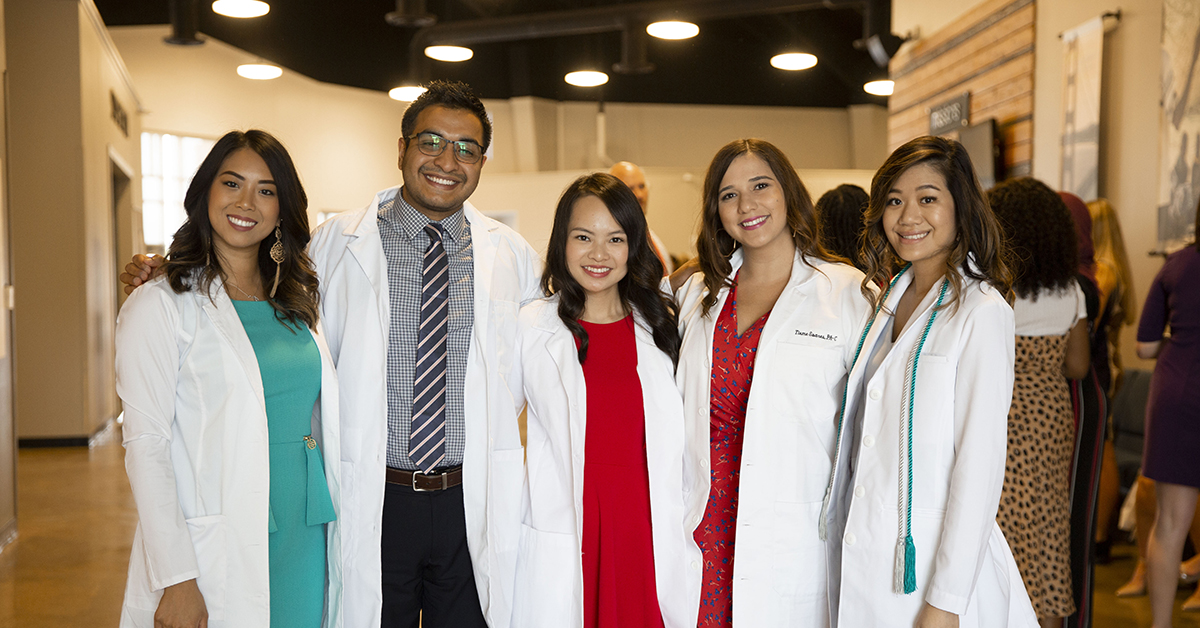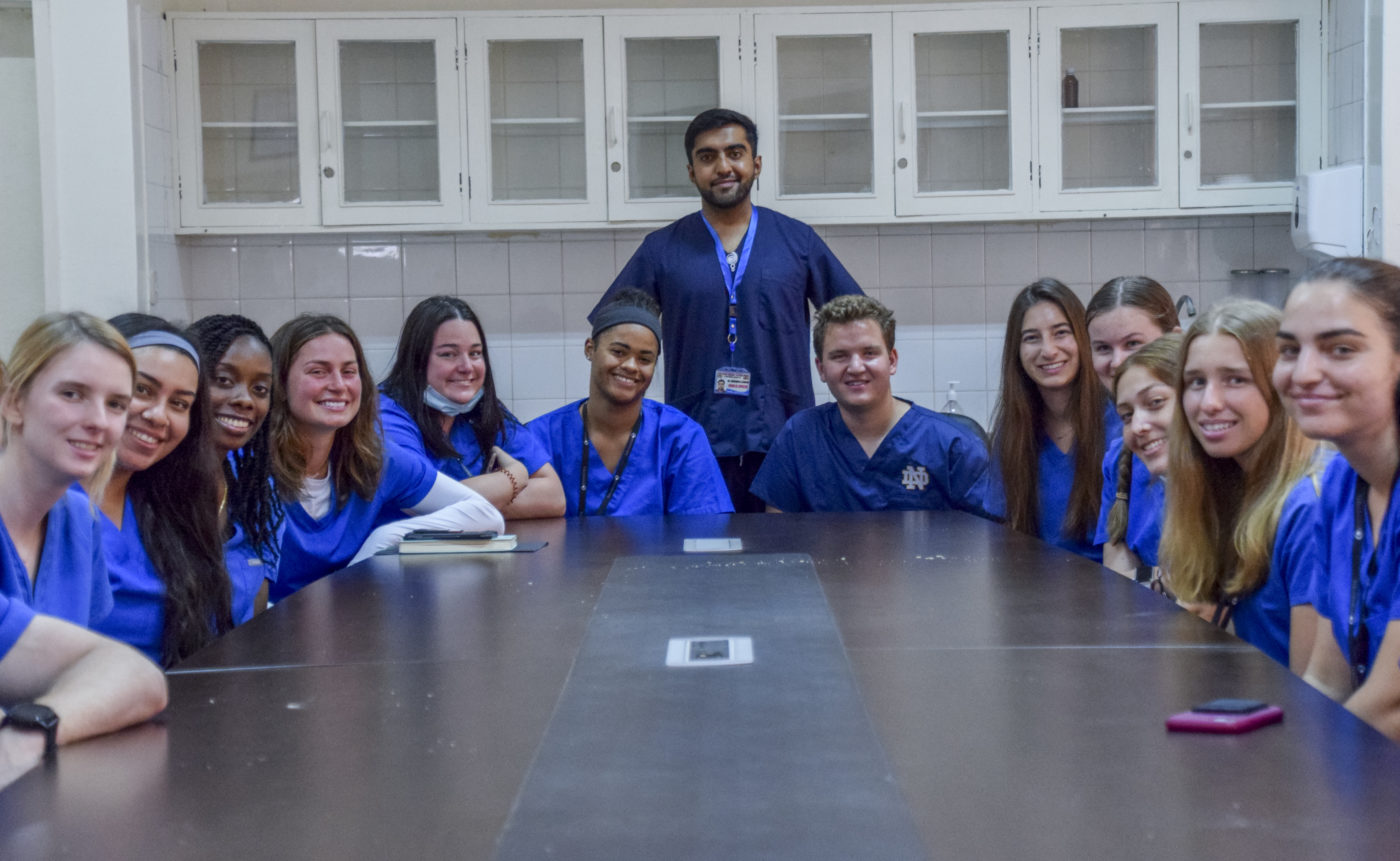Becoming a Physician Assistant (PA) is a decision that carries with it both excitement and challenges. With the right knowledge and preparation, you can navigate the admissions process with confidence, significantly increasing your chances of securing a spot in your dream PA school. This definitive guide aims to provide you with a clear roadmap of the PA school requirements, PA School prerequisites, and practical tips to maximize your chances of success.
Overview of Topics on How to Get Into PA School
PA School Requirements and Prerequisites
The journey to become a Physician Assistant is exciting, with specific PA school requirements and prerequisites designed to ensure candidates are well-prepared for the demands of the profession. PA school prerequisites typically include a combination of science and health-related courses.
These courses lay the foundation for the advanced medical training you’ll receive in the program. They commonly include subjects like anatomy, physiology, microbiology, and biochemistry. Knowing PA school prerequisites is the first step in planning your educational path. Here is some of what we cover in this guide:
How to Become a Physician Assistant?
The question of how to become a Physician Assistant is one many aspiring healthcare professionals ask. The process involves completing a bachelor’s degree, followed by a master’s degree from an accredited PA program, which typically takes 2-3 years.
This is then followed by passing the Physician Assistant National Certifying Exam (PANCE). Gaining direct patient care experience is also a fundamental part of the journey. Most PA programs require applicants to have a certain number of direct patient care hours, which can be obtained through roles like medical scribe, EMT, or nurse’s aide.
How to Get into PA School? What are PA School Requirements?
Apart from meeting the academic prerequisites, it’s essential to demonstrate your commitment to healthcare and patient care. This can be achieved through direct patient care experience, research, and community service.
A well-rounded application also includes strong letters of recommendation, a compelling personal statement, and a successful interview. PA school admissions consulting can be a valuable resource in this process, providing personalized guidance to enhance your application.
How Many Years to Become a Physician Assistant?
Many aspiring PAs wonder how many years it takes to become a Physician Assistant. Typically, after completing a 4-year undergraduate degree, it takes an additional 2-3 years to complete a PA master’s program. Including the time it takes to acquire necessary patient care experience and prepare for the application process, most individuals spend about 6-8 years training to become a PA. Read more about this in detail throughout this guide.
How Can Pre-PA Internships Abroad Help My Application?
Gaining a broad range of experiences is crucial for a strong PA application. Pre-PA internships abroad offer a unique opportunity for cultural immersion and a broader understanding of global healthcare systems. These experiences not only enhance your resume but also provide a deeper insight into diverse patient care practices and healthcare needs around the world.
How Can PA School Admissions Consulting Help My Application?
PA school admissions consulting can provide aspiring PAs with the expertise and support needed to craft a competitive application. From personal statement editing to interview preparation, admissions consultants offer a range of services designed to highlight your strengths and address any weaknesses in your application.
PA School Requirements and Direct Patient Care Hours for PA School
Direct patient care hours are a critical component of PA school requirements. Most programs expect applicants to have between 500-2,000 hours of hands-on patient care experience. This experience ensures that applicants have a basic understanding of patient care and are committed to the healthcare profession. These hours can be obtained through various roles, each providing unique insights and skills that will be valuable in your PA training and career.
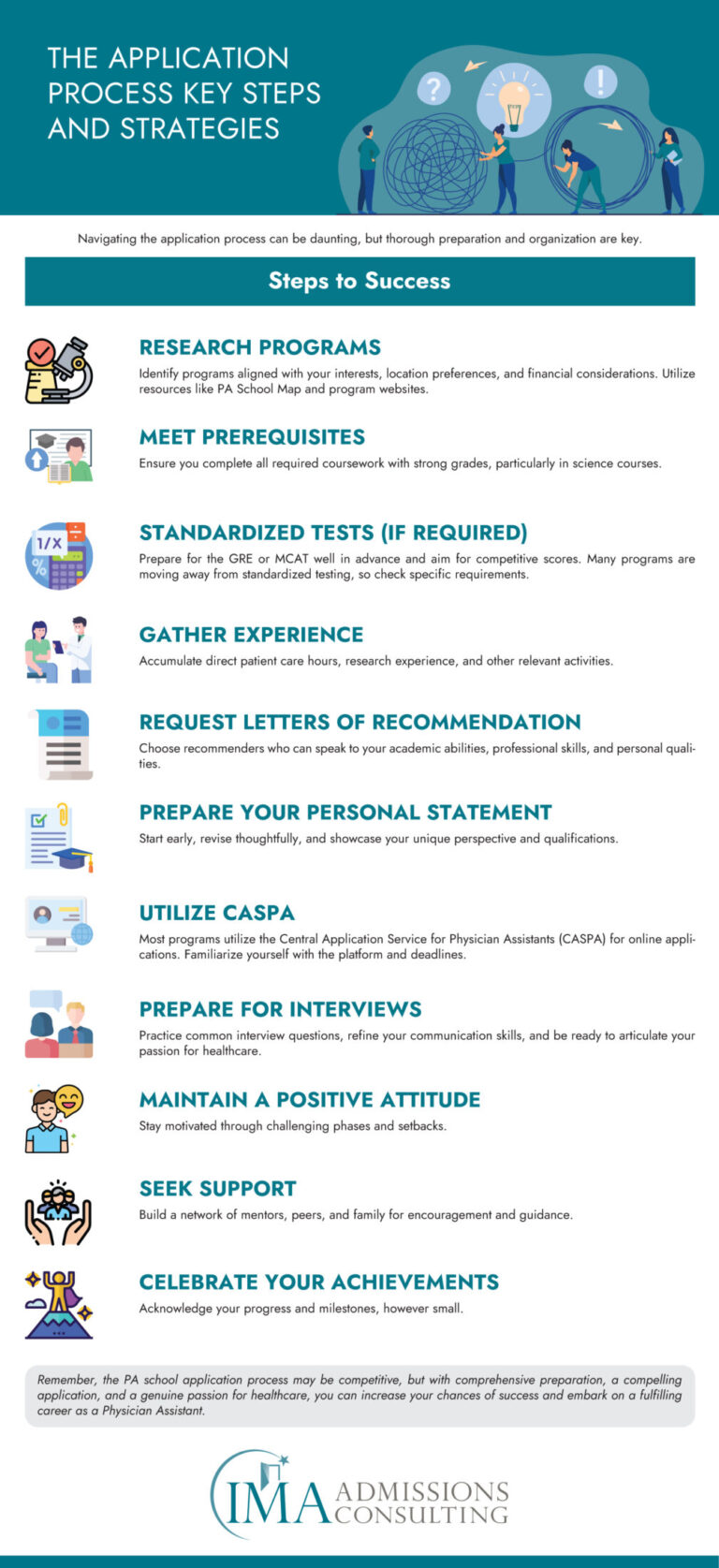
The path to becoming a Physician Assistant is demanding, it is also incredibly rewarding. By following the PA school requirements and prerequisites, gaining diverse experiences, and seeking guidance where needed, you can navigate the admissions process with confidence.

PA School Requirements (Courses)
When going through these PA School requirements, it’s important to also acknowledge that becoming a PA is strongly about demonstrating your passion for patient care, your commitment to the field of healthcare, and your readiness to take on the challenges and rewards of this dynamic profession. With the right preparation and mindset, you can achieve your goal of becoming a Physician Assistant and embark on a fulfilling career dedicated to helping others.
Core PA Prerequisite Courses
Building a strong foundation in these essential sciences is crucial for success in PA school and preparing you for the MCAT or GRE (if required).
These core prerequisite courses present a streamlined overview of the essential science courses required for most PA programs, along with their typical credit hours and lab requirements. Remember, specific program requirements may vary, so be sure to double-check with your chosen programs.
Central Pillars of PA School Requirements
General Biology I & II (8-10 credit hours): Dive into the fundamentals of life from cell structure to genetics and evolution. Embrace the lab to gain hands-on experience with microscopes and biological processes.
General Chemistry I & II (8-10 credit hours): Explore the world of atoms, molecules, and chemical reactions. Prepare for exciting lab experiments, mastering essential laboratory techniques.
Organic Chemistry (4-5 credit hours): Delve deeper into the intriguing realm of carbon-based molecules, their structures, and reactivity. Brace yourself for challenging lab sessions that solidify your understanding.
Biochemistry (4-5 credit hours): Witness the magic of molecules in action, grasping how biochemical processes fuel life. Be prepared for engaging lab activities that bridge the gap between chemistry and biology.
Human Anatomy & Physiology I & II (8-10 credit hours): Embark on a captivating journey through the intricate human body, dissecting its systems and functions in detail. Expect immersive lab sessions where you explore real anatomical structures.
Building Blocks for Success
Statistics (3-4 credit hours): Equip yourself with data analysis skills crucial for interpreting medical research. Consider introductory or biostatistics courses to hone your analytical thinking.
Psychology (3-4 credit hours): Gain essential insights into human behavior and communication, invaluable for patient interactions. General or abnormal psychology both provide valuable perspectives.
Medical Terminology (3-4 credit hours): Decipher the language of medicine, enhancing communication within healthcare settings. Explore standardized textbooks and online resources to master key terms.
Additional Recommended Courses
Genetics: Deepens your understanding of DNA, inheritance, and genetic disorders.
Molecular Biology: Examines the mechanisms of DNA replication, transcription, and translation.
Immunology: Explores the immune system’s functions and responses to pathogens.
Microbiology: Studies microorganisms, their roles in disease, and antimicrobial principles.
Cell Biology: Provides a detailed understanding of cell structure, function, and communication.
Remember
- Lab requirements are vital for most courses.
- Course credit hours may vary slightly depending on the program.
- Always check specific program prerequisites for any additional requirements.
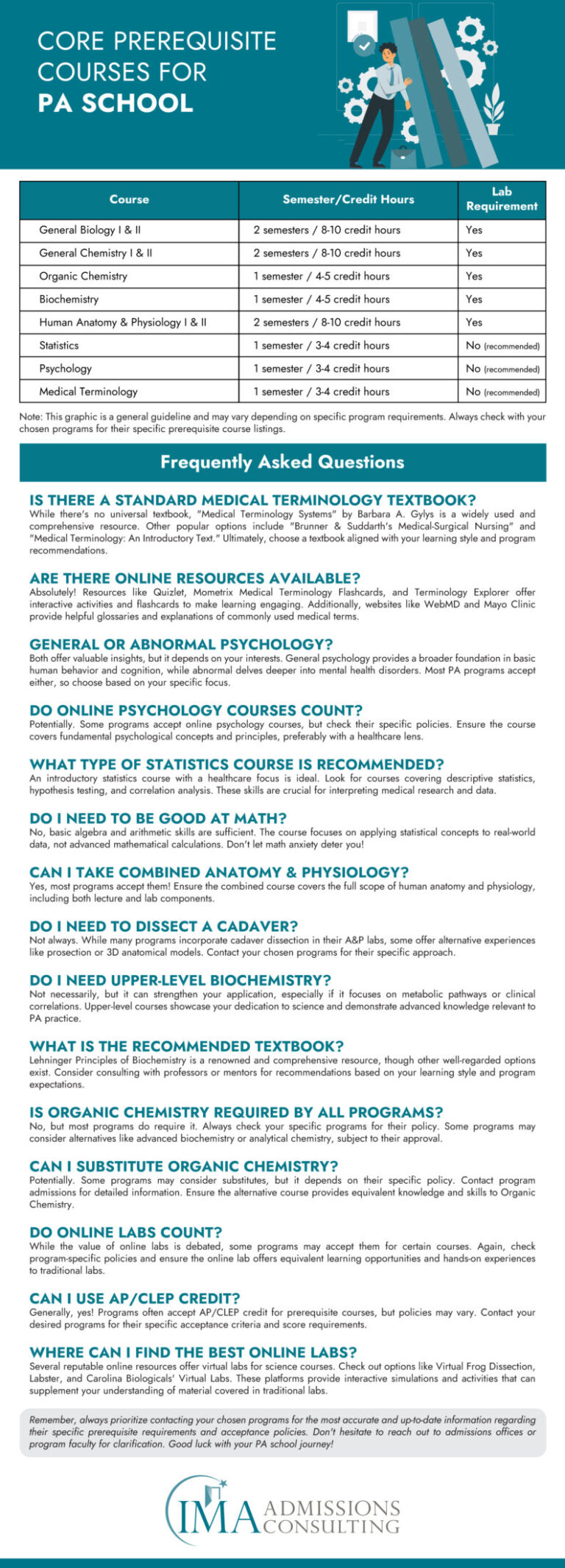
Embrace the challenge of mastering these foundational courses, and be confident that you’re building a strong academic foundation for your journey toward becoming a Physician Assistant!
PA School Requirements
Becoming a PA requires meeting specific academic and experiential criteria. Meeting these requirements is essential to a strong foundation for your application.
Bachelor’s Degree: While most programs accept applicants with any major, science-related degrees like biology, chemistry, or pre-medicine are often preferred. Some programs may consider graduate degrees as well.
GPA Hurdle: Programs typically require a minimum GPA, often ranging between 3.0 and 3.5, both overall and in science courses. Maintaining strong academic performance throughout your undergraduate studies is crucial.
Standardized Testing Crossroads
GRE/MCAT Acceptance (Declining Trend): Traditionally, many programs required the GRE or MCAT. However, a growing number are moving away from standardized testing. Be sure to check the specific requirements of your chosen programs.
Focus on Other Strengths: If your programs don’t require standardized tests, focus on highlighting your academic achievements, clinical experiences, and personal qualities through other aspects of your application.
Prerequisite Pathways
Foundational Sciences: Completing core courses like anatomy, physiology, biochemistry, and microbiology is essential. Programs may also require additional coursework in statistics, psychology, and writing.
Lab Opportunities: Look for courses with integrated laboratory components to gain practical experience applying theoretical knowledge. Strong performance in labs can strengthen your application.
Direct Patient Care
Building Hands-on Experience: Accumulate valuable clinical experience through various pathways:
- Volunteer in healthcare settings: Assisting at hospitals, clinics, or community health centers allows you to interact with patients and observe healthcare professionals in action.
- Shadow healthcare professionals: Shadowing PAs, physicians, nurses, or other healthcare providers offers insightful glimpses into specific careers and clinical processes.
- Work in healthcare roles: Consider positions like medical assistant, EMT, or phlebotomist to gain hands-on skills and exposure to the medical field.
Quantifying Your Experiences: Aim for 500-2,000 hours of direct patient care, depending on program requirements. Document your hours meticulously and highlight diverse experiences in your application.
Beyond Quantity: Prioritize quality experiences that provide meaningful exposure to patient interaction, clinical procedures, and healthcare challenges.
Crafting Your Narrative
Your Authentic Voice: The personal statement is your opportunity to stand out from the crowd. Showcase your unique story, motivations, and experiences that led you to pursue a career as a PA.
Beyond Academic Scores: While academic achievements are important, the personal statement goes beyond grades. Highlight your interpersonal skills, leadership qualities, resilience, and passion for serving others.
Show, Don’t Tell: Don’t simply list your accomplishments; weave them into a compelling narrative that demonstrates your growth, potential, and suitability for the PA profession.
Seeking Guidance: Seek feedback from mentors, professors, or writing tutors to refine your personal statement and ensure it shines with clarity and authenticity
Gearing Up for Interviews
Master the Basics: Research the program and anticipate common interview questions related to your application, program specifics, and healthcare knowledge.
Practice Makes Perfect: Conduct mock interviews with friends, family, or mentors to hone your communication skills, articulate your thoughts clearly, and address potential challenges with confidence.
Be Yourself: While preparation is key, don’t forget to relax and be yourself during the interview. Your genuine personality and enthusiasm for PA school will shine through.
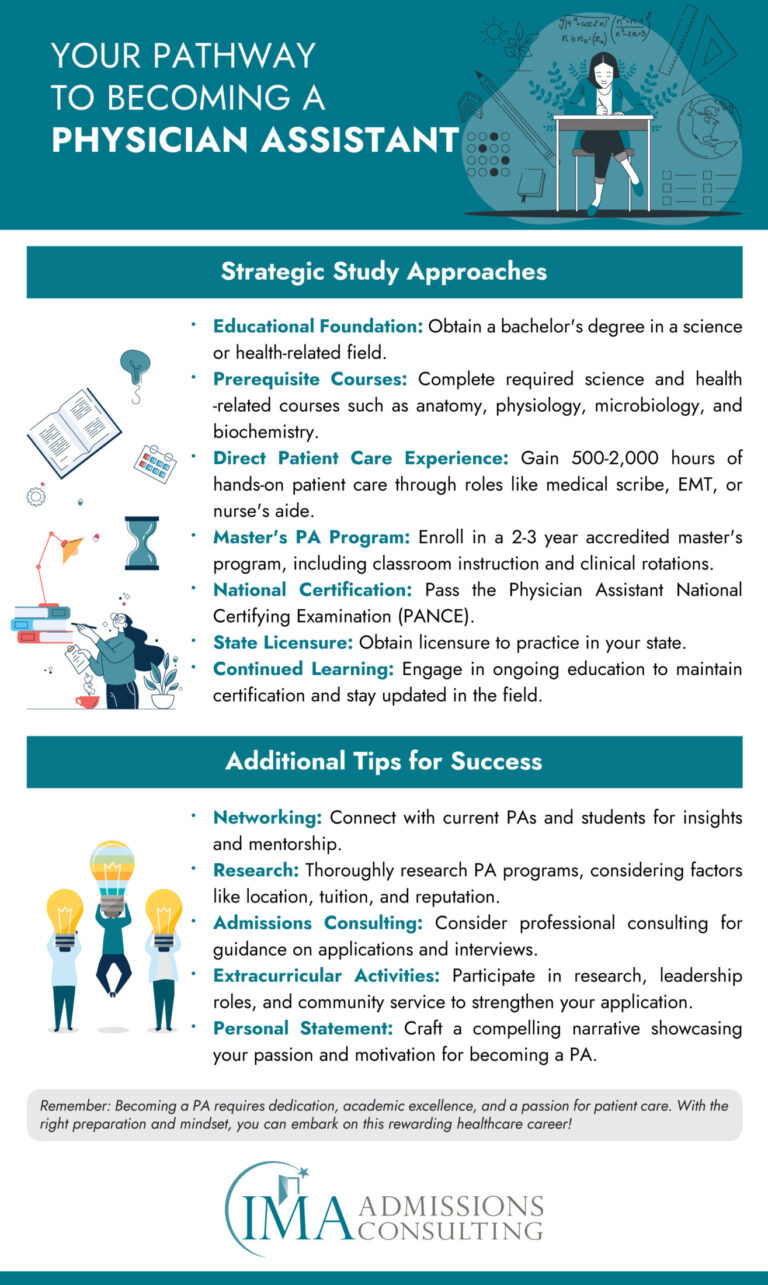
Keys to Success
In addition to meeting the basic requirements for PA school, several additional keys to success can significantly enhance your application and readiness for a career as a Physician Assistant.
Building a Strong Application
Meeting the formal requirements for a Physician Assistant program is undoubtedly crucial, but it’s the demonstration of your passion and potential through additional experiences that truly strengthens your application. Enhancing your profile with a range of experiences and qualities can set you apart from other candidates and showcase your readiness for the challenging and rewarding career that lies ahead.
Research PA Programs Thoroughly
Embarking on a PA program is a substantial commitment, and it’s crucial to find the right fit. Consider factors beyond the basic curriculum, such as the program’s location, length, tuition, and clinical affiliations. Research the faculty’s expertise, the school’s reputation, and the support services available to students. A detailed understanding of each program will help you choose one that aligns with your career goals, learning style, and personal circumstances.
Network with PAs and Students
Networking with current PAs and PA students can provide invaluable insights into the profession and the realities of PA education. Seek out mentorship opportunities, attend PA conferences, or join relevant online forums. Engaging with individuals who have successfully navigated the path you’re on can offer guidance, inspire you, and help you build a support network that can be beneficial throughout your education and career.
Sharpen Your Skills Through Extracurricular Activities
Involvement in extracurricular activities demonstrates your initiative, leadership, and commitment to the broader community. Participate in research projects to deepen your understanding of medical science and contribute to the field. Take on leadership roles in student organizations to develop teamwork and organizational skills. Engage in community service or volunteer work, particularly in healthcare settings, to demonstrate your commitment to helping others and to gain practical experience in patient care.
Craft a Compelling Personal Statement
Your personal statement is an opportunity to stand out from the crowd and show the admissions committee who you are beyond your grades and test scores. Use it to tell your unique story, including your motivations for becoming a PA, the experiences that have shaped your journey, and your vision for your future in healthcare. A compelling personal statement can make a strong impression and set the tone for your entire application.
Prepare for Interviews
Interviews are a critical component of the PA school application process. They not only assess your knowledge and readiness for the program but also evaluate your communication skills and personal qualities.
Practice answering common interview questions and think about how you can demonstrate your passion for the PA profession, your empathy, and your ability to work as part of a healthcare team. Be ready to discuss your experiences, your understanding of the PA role, and your career aspirations. Good preparation can help you remain calm and confident during the interview, allowing your true self to shine through.
While meeting the academic and experiential requirements for PA school is essential, these additional keys to success are what can truly set you apart as a candidate. By researching programs thoroughly, networking with professionals, engaging in extracurricular activities, crafting a compelling personal statement, and preparing for interviews, you can enhance your application and set yourself up for success in your journey to becoming a Physician Assistant.
With dedication, passion, and a proactive approach, you can navigate the competitive landscape of PA school admissions and take significant steps toward a rewarding career in healthcare.
Direct Patient Care
Accumulating hands-on experience in direct patient care is invaluable. It not only provides you with a deeper understanding of healthcare and patient needs but also demonstrates your commitment and dedication to the field. Volunteering in healthcare settings, shadowing healthcare professionals, and working in roles that provide direct patient care are all excellent ways to gain this experience. Many programs expect anywhere from 500 to 2,000 hours of such experience, so aim to meet or exceed these requirements to strengthen your application.
Research
Participating in research projects is another way to enhance your profile. It demonstrates your intellectual curiosity, critical thinking, and analytical skills. Engaging in research, whether at universities, hospitals, or private laboratories, allows you to contribute to the medical field while gaining an understanding of the scientific method and data analysis. These experiences can also lead to meaningful relationships with mentors and an opportunity to contribute to published studies or presentations.
Leadership
Taking on leadership roles in various contexts shows your ability to collaborate, motivate, and manage responsibilities effectively. Whether it’s leading a club at your university, organizing community initiatives, or assuming a supervisory role in your job, these experiences highlight your readiness to take on the challenges of a PA program and eventually, leadership roles in healthcare settings. Demonstrating your leadership skills can make a significant impact on your application by showing that you are prepared to be an active and contributing member of the PA community.
Community Service
Engaging in community service is a powerful way to demonstrate your altruism and commitment to addressing healthcare disparities. Volunteering at medical clinics, participating in health advocacy organizations, or contributing to outreach programs shows your dedication to making a difference. These experiences not only enrich your understanding of diverse patient populations but also reflect your compassionate nature and commitment to serving others, which are core values in the healthcare profession.
Personal Statement
Your personal statement is a crucial component of your application. This narrative is your opportunity to tell your unique story. It should highlight your motivations for pursuing a career as a Physician Assistant, your experiences that have prepared you for this path, and your career aspirations. A well-crafted personal statement can resonate deeply with admissions committees. It allows you to show your human side beyond grades and test scores, and connect with those making the decisions about your future.
It’s the additional experiences and qualities you bring that truly enhance your application. Direct patient care, research, leadership, community service, and a compelling personal statement are key elements that can set you apart.
Demonstrate your readiness and enthusiasm for the PA profession and show that you are not just qualified, but also a well-rounded and dedicated individual. By focusing on these areas, you can build a strong, competitive application and take a significant step towards achieving your goal of becoming a Physician Assistant.
Resources to Take Your Journey Further
- PA School Centralized Application Service (CASPA)
- American Academy of Physician Assistants (AAPA)
- PA School Map: Your Guide to Physician Assistant Programs
- How to Get Patient Care Hours for PA School (Without A Certification)
- Most Common PA School Admissions Questions in 2024
- What is a Physician Assistant? Learn About PA’s Role In Healthcare
Best Classes to Take Before the MCAT
General Chemistry
General Chemistry
General chemistry will give you a fundamental understanding of chemical principles and reactions, atomic structure, thermodynamics, and more. This knowledge is essential for the Chemical and Physical Foundations of Biological Systems section of the MCAT.
Frequently Asked Questions
How to become a Physician Assistant?
To become a Physician Assistant (PA), you must follow a series of educational and experiential requirements. Initially, you’ll need to obtain a bachelor’s degree, ideally in a science or health-related field. Following this, you’ll enroll in a Master’s PA program, which typically takes 2-3 years and includes both classroom and clinical instruction. After completing the program, you must pass the Physician Assistant National Certifying Examination (PANCE) and obtain state licensure to practice.
How to get into PA school?
Gaining admission into a PA school requires meeting specific program requirements, demonstrating strong academic performance, gaining clinical experience, and showcasing your personal qualities. Most programs require a bachelor’s degree, a minimum GPA, completion of prerequisite courses, and a certain number of hours of direct patient care experience. Additionally, a well-written personal statement, letters of recommendation, and a successful interview are crucial components of a competitive application.
How many years to become a Physician Assistant?
Becoming a Physician Assistant typically requires 2-3 years of full-time study in a master’s degree program after obtaining a bachelor’s degree. After completing the educational component, you’ll need to pass the PANCE and obtain licensure, which may take additional months. Thus, from start to finish, the process usually takes around 6-7 years.
How can Pre-PA Internships Abroad help my application?
Participating in pre-PA internships abroad with IMA can provide valuable clinical exposure and cultural immersion, enhancing your understanding of global healthcare systems and diverse patient populations. These experiences can broaden your perspective, improve your clinical skills, and make your application more competitive. You can read more about this topic in our What Is A Physician Assistant Internship and How To Get One article.
Do I need PA School Admissions Consulting?
The PA school application process can be complex. Considering our professional PA admissions consulting services can provide you with personalized guidance, helping you to highlight your strengths, address any weaknesses, and effectively communicate your passion for the PA profession in your application.
How many direct patient care hours for PA School are needed?
While requirements vary between programs, most PA schools expect applicants to have between 500-2000 hours of direct clinical experience. These hours can be obtained through roles such as medical assistant, emergency medical technician, nurse, or other positions that involve direct patient care.
Can I substitute courses?
Substituting courses depends on the specific requirements of the PA program you’re applying to. Some programs may allow substitutions or accept alternative coursework, but you must check with each program to understand their policies.
Do online courses count?
Many PA programs do accept online courses, especially for non-lab classes. However, for courses with a lab component, in-person labs are often preferred or required to ensure hands-on experience. Always check with the specific program for their acceptance of online coursework.
What GPA is needed for each course?
While the minimum GPA requirement varies by program, aiming for strong grades in all prerequisite courses is essential, especially in sciences. Most competitive applicants have a GPA well above the minimum requirement, often 3.5 or higher.
Should I take upper-level science courses?
While not always required, taking upper-level science courses can strengthen your application by demonstrating your ability to handle rigorous coursework. It also further prepares you for the academic challenges of PA school.
Meeting PA School Prerequisites and PA School Requirements
Becoming a Physician Assistant is a journey that requires dedication, academic excellence, and a genuine passion for serving others. By investing in preparation, knowing the requirements, and utilizing available resources like IMA consulting services, you can confidently embark on this rewarding journey toward a fulfilling career in healthcare.
As you can see, gaining acceptance to PA schools in the USA is difficult. Our personalized PA school admissions consulting services can help you gain an advantage over the competition. We can help you create a PA school application that will get attention. Read more about us here to learn how we can help you get accepted into PA school and participate in Pre-PA Internships in Kenya, Peru, Colombia, and other fascinating nations abroad.



